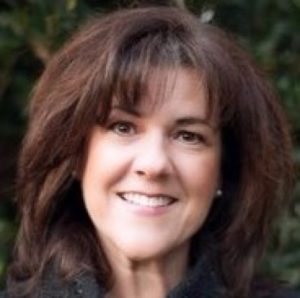People living with cancer, particularly those with limited English-speaking abilities, have been hampered in receiving health care guidance, nutritional advice, financial assistance and other important matters during the COVID-19 pandemic. A new proactive program from North Carolina Cancer Hospital’s Mary Anne Long Patient and Family Resource Center, that included volunteer patient navigators, was able to help a majority of the 600 cancer patients in the pilot program during the first seven months of the pandemic. The navigators used virtual resources to reach patients self-isolating in their homes as well as many who were deferred from scheduled appointments.
The article was published in the journal Supportive Care in Cancer.

“We were able to pivot from an old model of patient resourcing to finding a new way to reach cancer patients,” said Sharon M. Bigelow, RN, MSN, ANP OCN, lead author and nurse navigator in the Patient and Family Resource Center at the North Carolina Cancer Hospital, the clinical home of UNC Lineberger Comprehensive Cancer Center. “Our new model demonstrated that our nurse-led volunteers were able to connect with identified patients to assess for unmet needs and provide valuable support to decrease barriers to care.”
At the start of the pandemic, the navigators devised a novel outreach strategy based on risk factors that were known to result in poor patient outcomes prior to the pandemic. This enabled them to identify the most vulnerable cancer patients and then provide them with meaningful interventions as quickly and effectively as possible.
The findings also showed that the most common risk factors that made accessing care difficult were:
- Distance from the cancer hospital
- Complex care needs
- Being over the age of 65
- Not being fluent in English
The study authors found that Spanish-speaking patients had fewer identifiable risk factors at the start of the study but had nearly double the number of virtual interventions compared to other patients. They also often required follow-up sessions due to a variety of complex, interwoven factors. Four of the resource center volunteers were bilingual, and with the aid of an outside interpreter, they were successful in connecting with people who only spoke Spanish.
“We created a way for our volunteers to participate in our navigation program, which in turn, allowed for a substantial increase in our capacity by using a combination of 22 UNC student and community volunteers, most of whom have over six years of experience as trained navigators,” said Elizabeth Hart, nurse navigator at UNC Lineberger and N.C. Cancer Hospital.
“Given the success of our outreach, leadership at UNC Health hopes to expand these efforts to other UNC affiliates based on our model,” Bigelow concluded. “I am so grateful that we were able to meet the needs of our most vulnerable patients and meet them where they were during this unprecedented time. Many of the issues facing our patients, like food insecurity and transportation, would have gone unmet if not for our new program and the skills of our staff and truly wonderful, highly trained volunteers.”
The next step for the Patient and Family Resource Center, which is part of the UNC Lineberger Comprehensive Cancer Support Program, is to add an additional focus on cancer patients living in communities of persistent poverty as they have higher cancer mortality rates. The center’s hope is to further decrease barriers to care and thereby achieve optimal outcomes for these cancer patients. They have already identified nine counties, primarily in southeastern and northeastern North Carolina, for their efforts.
Authors and Disclosures
In addition to Bigelow and Hart, the other authors are Tina Shaban, Pamela Baker and Marianne Baskaron, UNC Lineberger and N.C. Cancer Hospital; Preeyanka Rao and Ali Ahmad Khan, University of North Carolina; Todd A. Schwartz, DrPH, UNC Gillings School of Global Public Health and UNC School of Nursing; and Deborah K. Mayer, PhD, UNC Lineberger and UNC School of Nursing.
Mayer receives partial support from the Duke Endowment Fund Grant 6650-SP. The authors declare no competing interests.
